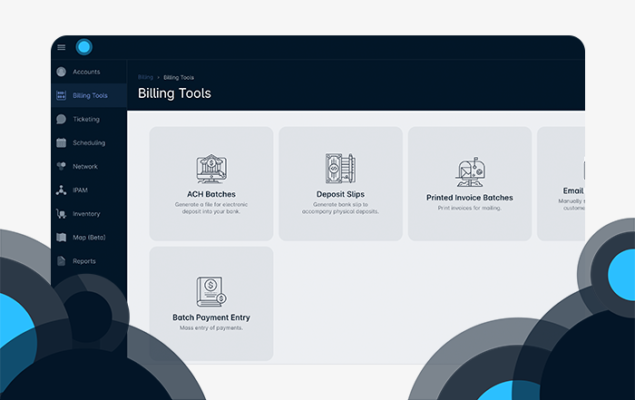10 min read
How To Reduce Operating Costs & Increase ARPU For Your Multi-Dwelling Unit
Let’s go over a scenario that may sound familiar: Accounting software open on one window, calendar on another with reminders frequently going...

Whether you’re a large or small Internet Service Provider, your company’s underlying goal is to grow. While expanding into new markets can be an effective way to leverage your core business for growth, before jumping in, there are many things to consider.
Like any other business endeavor, expansion can be risky; therefore, it is vital to thoroughly explore opportunities to ensure you have the right tools to succeed without getting in over your head.
In today’s hyper-connected world, consumers expect high-quality broadband, but they also want choices, and rightfully so. With one in three Americans living in a multi-dwelling environment, from condominiums to student housing, it would appear that the Multi-Dwelling Unit (MDU) vertical could potentially be a gold mine as a broadband provider.
However, the Multi-Dwelling Unit (MDU) space has a shady past when it comes to playing fair. Despite the Federal Communications Commission (FCC) banning landlords from entering exclusive service agreements with Internet Service Providers in 2008, dominant telecom companies exploited loopholes to benefit themselves while eliminating potential competition, leaving the consumer with little to no options regardless of quality or service cost.
Fast forward to February 2022, the FCC unanimously voted to ban dominant telecom companies from entering into certain revenue-sharing agreements with landlords that keep competing ISPs from serving a building’s tenants. The rules also force broadband providers to disclose any exclusive marketing arrangements they have with landlords to people residing in their buildings.
Opportunity knocks, and it could be knocking on many doors. The recent ruling means that consumers will have the chance to enter into agreements with an Internet Service Provider of their choice versus those lining the landlord’s pockets.
With consumers having a multitude of personal devices that perform an array of bandwidth-consuming online activities, the demand for fast and reliable internet has never been greater. Now subscribers will be able to have broadband options that best fit their unique needs.
The recent ruling from the FCC will allow for more competition in the Multi-Dwelling Unit (MDU) space, giving subscribers more options and broadband providers endless opportunities to expand their business while leveraging existing infrastructure.
It is an exciting time for Internet Service Providers looking to explore new revenue streams and an equally exciting time for Sonar to help our customers reach new heights.
Watch the five-part MDU video series below if you are ready to explore how Sonar helps Internet Service Providers leverage automation and existing infrastructure in Multi-Dwelling Unit (MDU) space.
The first video of our MDU series focuses on the Account Management portion of your MDU business. In Sonar, address information can be entered without immediately being associated to a customer account; this allows you to pre-configure the addresses you service and populate the customer information as they move in. The video below details the two methods this can be done via, along with additional benefits of managing your customer accounts with Sonar.
Service Management is an important part of managing a Multi-Dwelling Unit. With Sonar’s range of billing features, including automation and customizable services, you’re able to streamline the entire process from start to finish. We take a look at configuring services and their pricing model, along with the process of creating scheduled events which will allow you to automate processes such as adding and removing packages or services at a future date.
Just as significant as Account and Service Management is the ability to reliably and efficiently manage your network. In this video, we dig into how Sonar can play a role in your network provisioning, whether you’re just getting started or you’ve got a full-fledged network already operational. We shine a spotlight on configuring and monitoring service reliability, tracking service usage, and the ability to automate data suspension due to unpaid invoices.
Our next video focuses on Sonar’s flexible and scalable inventory system. A common hurdle in the ISP industry is having to manage a separate inventory system, which can lead to blind spots in inventory use for those with limited access to both platforms. With Sonar, you’re able to enhance your inventory management and make the organization that much easier. Our inventory system provides full customization that enables you to track the inventory location down to the field technician’s truck it’s currently assigned to, or even the shelf it can be found on, along with choosing which details you wish to track such as the MAC address, serial number or even IMSI. Furthermore, you’re able to broaden what you track, whether it be from network equipment through to furniture.
The final video of our MDU series provides an overview of additional features that can provide even more benefits to your MDU business. In it, we touch on the following:
Sonar uses intelligent automatic provisioning making managing MDUs quicker, easier, and more cost-effective than ever before. Learn more by visiting our website https://sonar.software/mdu

10 min read
Let’s go over a scenario that may sound familiar: Accounting software open on one window, calendar on another with reminders frequently going...

4 min read
One of the leading causes of errors and accidents in the workplace is human error, just your regular run-of-the-mill mistake, and the reason...

3 min read
It’s undeniable that cash flow is the backbone of any business, and that includes Internet Service Providers. Whether you are delivering...